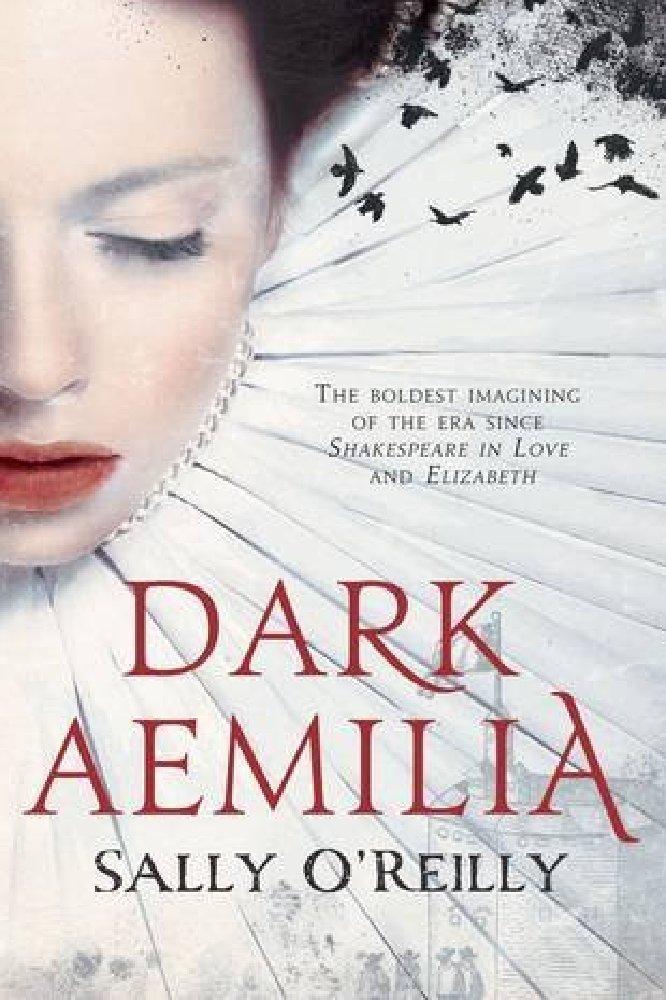
Dark Aemilia
Dark Aemilia is a historical novel based on the life of Aemilia Bassano Lanyer, one of the first women in England to be published professionally as a poet. Some experts think she may have been the ‘Dark Lady’ who inspired many of Shakespeare’s sonnets, and I was fascinated by the idea that she was a poet herself. I thought this would lead to conflict and rivalry. The sonnets addressed to her are violent and angry as well as passionate, so this fitted.
The final ingredient is witchcraft. These were superstitious times, and Aemilia believes absolutely in the power and evil of black magic.
How much has your PhD helped you to write fiction?
I had published two novels (with Penguin books) before I began my PhD at Brunel, and I had also written a number of short stories. However, when working on my PhD I was more rigorous both in my research methods and in my analysis of the plot, structure, characterization and themes of my book. I had more time, and access to feedback from academics.
To what extent does teaching help you edit your own work?
Teaching is helpful in a number of ways in relation to writing my own fiction. I can see that students who aren’t willing to edit and re-edit their work don’t produce work of the highest standard, so in that sense it reconfirms what I already know. When I give advice to students, it lays down a commitment to good practice in my own writing. For instance, I tell them to put their first draft aside for as long as possible before starting to edit it. This gives them more objectivity, and enables them to perhaps be more rigorous when reworking their drafts.
Please tell us about your two previous novels You Spin me Round and The Best Possible Taste.
Both are contemporary novels. The Best Possible Taste tells the story of a perfectionist Brighton chef who thinks that he only likes highbrow, chic, intellectual women, but ends up falling for a lap dancer who is more intelligent than he is. It’s a satirical take on the Guardian-reading bourgeoisie, and the bubble which we all inhabit.
You Spin me Round is about the sex war in the 80s. I wanted to get to grips with the arguments at the time, and the way in which all the moral issues seemed to be black and white – Thatcher v. Scargill, Russia V. the US, men v. women. It was an immense challenge to write, but I learned a tremendous amount in the process.
Tell us about your research process for the book.
The starting point for the book was the play Macbeth. Originally it was going to be the story of Lady Macbeth. But I couldn’t relate to the eleventh century setting, so I decided to research Shakespeare’s London and the first staging of the play. I found that one of the first reviews, written in 1611, was in the journal of a London physician and ‘magician’ called Simon Forman. Soon after finding out about him, I discovered Aemilia Bassano, and I was hooked.
I read a lot of contemporary drama – Ben Jonson and Christopher Marlowe for instance – as well as Shakespeare’s own plays. Then I read as widely as I could about the social and political background, religion and superstition and the physical nature of the Elizabethan and Jacobean world.
But I was also obsessed with physical detail, so I spent time in London, trying to find what remains of that time. Very little, in many ways, thought the layout of the City of London is the same in some places. Yet it’s surprising how much you can visualize by visiting places like the Museum of London and studying their artefacts.
What can you tell us about the character of Aemilia?
She was from a family of immigrant Jewish Venetian musicians, who came to England to play for Henry VIII. After she was orphaned, she became the mistress of Henry Hunsdon, the Lord Chamberlain. Six years later she became pregnant and was married off to her cousin, Alfonso, who spent her dowry within a year. Her greatest achievement, in a society in which women were treated as an inferior form of humanity, was to write and publish a proto-feminist book of poems Salve Deus Rex Judaeorum retells the story of the Crucifixion from the point of view of the women that Jesus knew, and Aemilia also suggests that it was Adam, not Eve, who was to blame for the Fall of Man.
When did you passion for Shakespeare begin?
I read English at university, and I love the way that Shakespeare uses language, of course, and that he pins down emotions and problems that are timeless. Many of his strongest and most memorable characters are women. I love the scene in which Cleopatra rescues her flawed relationship with Anthony after his death, making both of them superhuman deities of power and passion, and the court scene in which Portia outwits Shylock, and of course the shimmering evil of Lady Macbeth, burned out in just one Act by her own ambition and desperation.
What key advice do you give to your students when they start your course?
Read every day and write every day. Every single day, without fail. And write to find your own voice, and make sense of your own experience, rather than as a route to fame and fortune.
What is next for you?
My publisher Myriad Editions has commissioned a novel about Aphra Behn, the first woman to make her living from writing. She was one of the most colourful and brilliant figures in Restoration London, and I’m very excited about this project.

